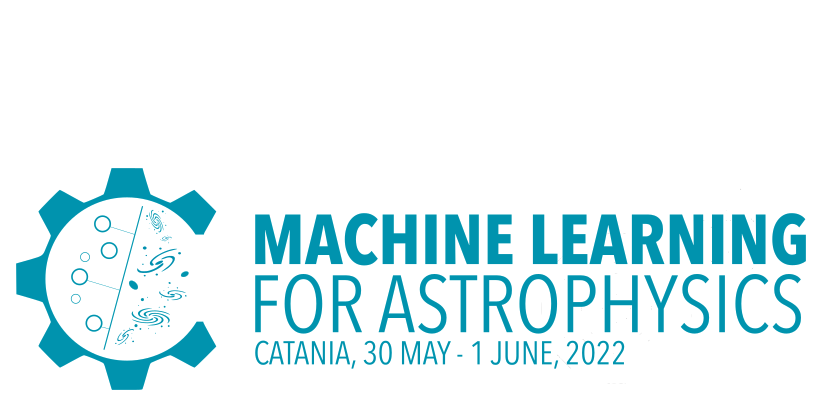Speaker
Description
The halo mass function describes the abundance of dark matter halos as a function of halo mass and depends sensitively on the cosmological model. Accurately modelling the halo mass function for a range of cosmological models will enable forthcoming surveys such as Vera C. Rubin Observatory’s Legacy Survey of Space and Time (LSST) to place tight constraints on cosmological parameters. Due to the highly non-linear nature of halo formation, understanding which quantities determine the halo mass function for different cosmological models is difficult. We present an interpretable deep learning framework that allows us to find, with minimal prior assumptions, a compressed representation of the information required to predict the halo mass function. We apply this framework to investigate whether in addition to peak height, information on growth history is required to accurately model the halo mass function. We use neural network models that consist of an encoder-decoder architecture: the encoder compresses the input linear matter power spectrum and growth function into a low-dimensional representation, and the decoder uses this representation to predict halo abundance given a halo mass and redshift. We interpret the representation by quantifying mutual information between the representation and the ground truth halo number densities. This can enable us to gain new insights on what physics is involved in the process of halo formation, and a better understanding of how to accurately model the halo mass function for different cosmological models.
| Main Topic | Deep learning |
|---|---|
| Participation mode | In person |

